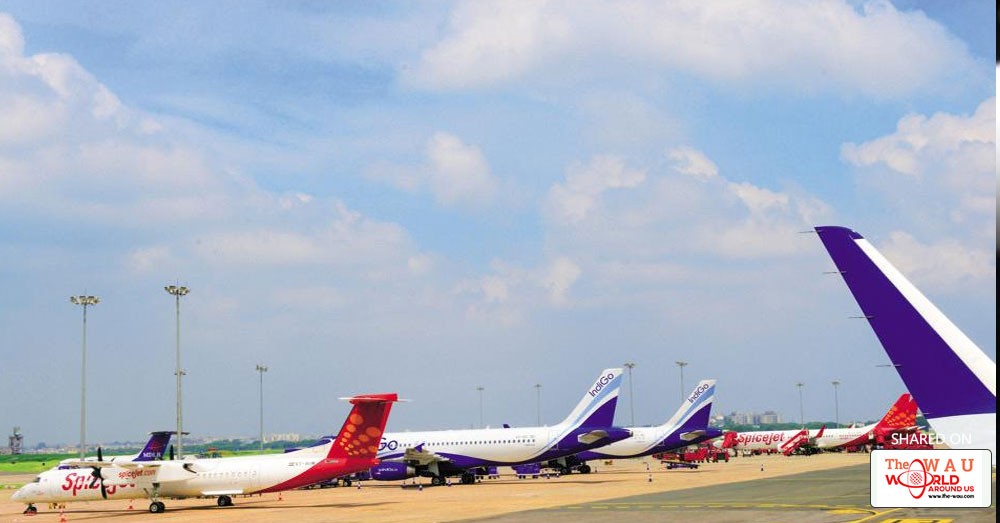At least two planes are struck every day in India by airborne birds or animals on runways, accidents that pose a serious risk to human lives and the aviation industry.
According to latest data obtained through the RTI law from the Directorate General of Civil Aviation (DGCA), more than 4,000 aircraft suffered wildlife strikes — hit by birds or animals — in about 80 airports over the past five years.
Such collisions increased substantially from 607 in 2012 to 839 in 2016.
The airports in New Delhi and Mumbai, the busiest in the country, report the maximum number of bird hits. Data show the Capital registered 135 cases in 2016, followed by Mumbai’s 72.
The growing incidence of bird strikes is the result of abundant availability of food in and around airports, which are buffeted by open grassland, ponds and human habitations that generate tonnes of leftover foodstuff.
“Thiruvananthapuram airport reported 28 cases of bird hits in six months because there are meat shops close to the airport. Considering the low plane traffic, the number is quite significant,” an Airports Authority of India (AAI) official said.
Read more: Delhi airport scare: 3 years on, DGCA yet to frame guidelines for drones
The accidents spike during the rainy months from July to October.
“Small insects, food particles, water bodies that attract birds are found in abundance during the rainy season leading to increase in cases in monsoon,” said an official of the DGCA, the civil aviation regulator.
“In 2% cases, wild animals such as Nilgai, deer, wild boar and jackal sneak into airports, occupy the runaways and collide with planes.”

Breaches in the perimeter wall of airports in Kolkata, Amritsar, Varanasi and Jabalpur have attracted wild animals to runways. “This year we had three cases in Kolkata and two each in Amritsar and Varanasi,” the DGCA official said.
The accidents cause major and sometimes permanent damage to the aircraft, unnerve the crew and cost airlines substantial flying hours in repairs. Domestic airlines lost more than Rs 25 crore in 2014 to bird hits.
The captain of an Airbus A320 with a private airline switched off the good engine instead of the damaged one that sucked in a bird during take-off in New Delhi this January.
He corrected the mistake immediately, but his nervous response posed a midair scare for more than 180 passengers on board.
“A few years ago, an eagle hit a plane’s windscreen and broke it, injuring a pilot’s eye,” an AAI official said.
Strategies to reduce bird strikes such as habitat modification, auditory and visual deterrents, avian radar system and changes in flight time and route have been either proposed or placed.
But these will make a little dent to the problem in an age when aircraft movements have increased around 20% in five years in the country. There were 1.15 million take-offs and landings in India in 2016-17.
Residents of areas close to the Indira Gandhi International Airport in New Delhi said more birds are noticed these days feeding on garbage dumped in the open.
“The Delhi Development Authority has put up a notice board cautioning residents not to throw food waste in the open as it might attract birds and interfere with aircraft movement. But there is gross negligence by the civic authorities. They let garbage rot in the open,” said AS Chhatwal, resident of Dwarka Sector 8 that shares the boundary with the airport.
The DGCA issued this August a nine-page aerodrome advisory circular, suggesting programmes tailored to suite conditions at the site.
“This should include both habitat management and active wildlife control, and might include lethal methods subject to local wildlife regulations,” it says.
New Delhi’s airport operator, DIAL, takes “proactive measures” to mitigate hazards of bird strike, according to its spokesperson.
Share This Post












